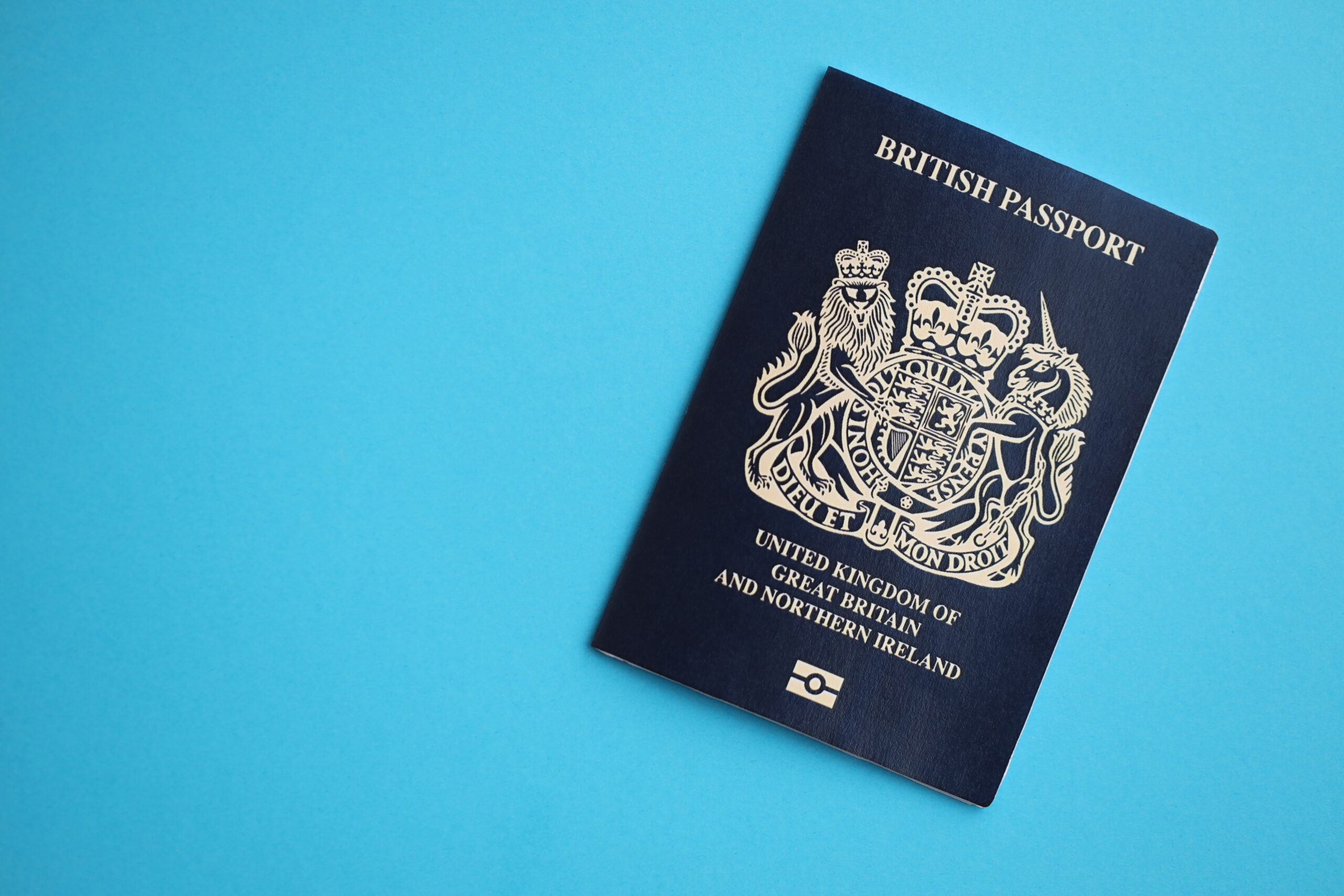Pathway to Citizenship for Global Talent Visa Holders is more than just a legal process; it is a journey that symbolises stability, belonging, and the chance to call the UK home for good. For many who have come on the Global Talent route, the move is not only about professional opportunity but also about building a long-term life in a country that values innovation, creativity, and leadership.
This pathway is often viewed as a natural progression: first establishing roots, then securing settlement, and finally stepping into the full rights and responsibilities of citizenship. It represents not just ticking off requirements, but reaching a milestone of recognition — where your contribution to the UK is matched with the right to fully belong.
In 2025, the process is being spoken about more than ever, with applicants keen to understand how their years of residence, work, and integration lead towards settlement and eventual citizenship. Along the way, there are expectations to meet — from demonstrating continuous residence, to showing readiness for life in the UK, to embodying the principles of good character. These steps are not hurdles for the sake of it, but part of shaping a fair and consistent journey to citizenship.
What is the Global Talent Visa?
The Global Talent visa is a UK immigration route for individuals who are leaders or potential leaders in fields such as academia or research, the arts and culture, or digital technology. You must either have a qualifying endorsement body or have won a prestigious prize in your field.
The visa allows you to live and work in the UK (or extend your stay), and importantly, leads to settlement (ILR), which is a prerequisite for applying for British citizenship.
Indefinite Leave to Remain (ILR) / Settlement Timelines for Global Talent Visa Holders
One central question is: how long do you need to be in the UK before you can apply for settlement?
As of 2025 onwards, updated continuous residence rules are in force for Global Talent visa holders.
Here are the key timelines:
| Type of Endorsement / Global Talent Category | Settlement (ILR) qualifying period | Key points/exceptions |
| Endorsed by the Royal Society, British Academy, Royal Academy of Engineering, or UK Research and Innovation (UKRI), or via a prestigious prize listed in Appendix Global Talent | 3 years of continuous residence in the UK | The continuous residence may include time on the Global Talent visa and certain other eligible visa routes. Time spent outside the UK must respect the 180 days per rolling 12 months rule. |
| Endorsed under the “exceptionally promising” criteria (for example, by Tech Nation or Arts Council England under that criterion) | 5 years of continuous residence | Same rules regarding permitted absences and lawful permission apply. |
These changes were clarified in the “Continuous Residence Guidance” published by the Home Office, and impact applications from 29 July 2025 in many cases.
Continuous Residence / Absences
To qualify for ILR, besides fulfilling the 3- or 5-year qualifying period, you must maintain continuous residence. Key rules:
- You must have lawful leave to stay during the qualifying period.
- Absences from the UK must not exceed 180 days in any rolling 12-month period.
- If you hold endorsement by certain bodies (e.g., UKRI, Royal Society, etc.), absences for work/research abroad may sometimes be more flexibly treated, provided evidence is shown.
Applying for Naturalisation (British Citizenship)
Once you hold an ILR (settlement), you may become eligible to apply for naturalisation as a British citizen. Below is an outline of the requirements and timeline.
Timeline after ILR
- You must hold ILR for at least 12 months before applying for naturalisation, unless you are married to (or in a civil partnership with) a British citizen. In that case, sometimes you can apply as soon as ILR is granted.
- On top of that, you must satisfy the residential/physical presence requirements (how many days you have been in the UK), knowledge of English / language and life in the UK, good character requirement, and intention to continue living in the UK.
Key Naturalisation Requirements:
- Residency: Typically, 5 years of lawful residence in the UK, including the period before ILR. If married to a British citizen, it may be 3 years.
- Physical presence: There are rules on how many days you may be absent during those qualifying years. Exceeding them may disqualify or delay applications.
- Knowledge of language & life in the UK: You must show sufficient knowledge of English (or Welsh / Scottish Gaelic in some cases) and pass the “Life in the UK” test. Exemptions exist for certain ages or conditions.
- Good character requirement: The Home Office updated guidance in February 2025, tightening rules, especially concerning those who entered the UK illegally. From 10 February 2025, applications for citizenship will normally be refused for those who entered illegally, regardless of how much time has passed.
Recent Policy Changes as of 2025
It is important to be aware of recent and upcoming policy changes that could affect you:
- Continuous residence guidance updates
The Home Office’s Continuous Residence guidance (circa July 2025) specifies clearly the 3-year and 5-year qualifying periods for different kinds of Global Talent visa endorsement. - Good character requirement tightened
As noted, the “good character” policy was updated in February 2025, particularly with respect to illegal entry. Applications made on or after 10 February 2025 will normally be refused if the applicant previously entered the UK illegally. - White Paper proposals (under consultation or in progress)
There are proposals in the UK immigration white paper (2025) to extend the standard qualifying period for ILR in many routes to 10 years, except for those who have made a “significant contribution to the economy and society”. Whether the Global Talent route will be fully exempt or partially exempt remains to be clarified.
As of September 2025, these proposals are not yet law, so the 3- and 5-year ILR paths remain operative under the current rules. Anyone planning should monitor for official legislative change. - Life in the UK / English language rules
There have been updates to the Knowledge of Language and Life in the UK requirement, in particular clarifications of which routes must comply, which exemptions apply (age, mental or physical condition), and how “English test” or equivalents count.
Step-by-Step: From Global Talent Visa → ILR → British Citizenship
To make it clearer, here is a typical pathway for a Global Talent visa holder aiming for UK citizenship:
- Obtain the Global Talent visa
Secure endorsement or a prize in one of the eligible fields. Start the visa, living and working in the UK under its terms. - Residency for ILR
- If your category allows the 3-year settlement route (e.g., endorsed by UKRI, Royal Society, etc., or via a prestigious prize), aim for 3 years of lawful, continuous residence with acceptable absences.
- If in an “exceptionally promising” category, expect 5 years.
- Ensure you meet other ILR requirements: lawful leave status, financial requirements, knowledge of English & life in the UK, etc.
- Apply for ILR / Settlement
Apply in the last 28 days before completing the required continuous residence. Check that you satisfy all documentary and eligibility requirements (permits, endorsements, absences, KoLL). - Hold ILR for 12 months
After ILR is granted, generally wait one year before applying for naturalisation unless married to a British citizen. - Naturalisation application
When you apply:- You must have ILR for at least 12 months (in most cases).
- Meet physical presence/absence rules.
- Pass or be exempted from the English language test and Life in the UK test.
- Satisfy the good character requirement (including the updated rules from 2025).
- Intend to continue living in the UK.
- Ceremony & Oath
If successful, you will be invited to a citizenship ceremony and take the oath/affirmation. After that, you may apply for a British passport.
Things to Watch / Tips for Applicants
- Keep careful records of travels/absences, endorsements, and all UK visas/permissions you hold. Exceeding permitted absences could delay or invalidate ILR eligibility.
- Make sure you satisfy the Knowledge of Life in the UK and English language requirements in advance—don’t leave this to the last minute.
- Check whether you fall under any exemptions (age, mental or physical condition) so that you aren’t required to take certain tests.
- Be aware that the good character requirement is now stricter—illegal entry to the UK (at any time) is a material issue if applying for citizenship from 10 February 2025 onwards.
- Monitor legislative changes, especially the White Paper proposals around extending ILR qualifying periods or applying new rules for citizenship. Proposals are not yet law, but could affect long-term plans.
Conclusion
The UK citizenship Global Talent visa path is often spoken of as one of the more direct and rewarding routes towards building a permanent future in Britain. For many, it feels less like a set of technical requirements and more like a structured journey, a progression that reflects both professional achievement and personal commitment. The themes are familiar: recognition of talent, careful management of residence, and meeting the milestones that mark readiness to fully belong.
What really matters here is perspective. Each stage, whether it feels like a three-year stride or a five-year investment, is about more than just time passed. It is about showing contribution, continuity, and character — the values that underpin the move from being a visa holder to becoming a settled resident, and eventually a citizen. Policy shifts may come and go, rules may be refined, but the essence of the journey remains the same: those who bring talent and dedication can look forward to turning their UK chapter into a lasting home.
If this is the journey you are on, or the one you’re considering, it helps to stay inspired and well-informed. That’s why we encourage you to keep following Global Talent Mag, where we explore these pathways in depth, share insights, and offer guidance on how to make your story of talent, settlement, and citizenship a fulfilling one.




